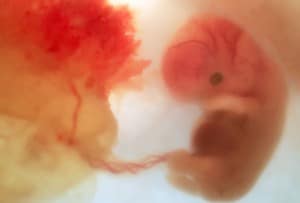
In a new study conducted by UCL Institute of Child Health (ICH), published on Friday 9 August in the journal Brain, researchers found that when the treatment was done on mice the incidence of neural tube defects (NTDs) was reduced by 85 percent. What is even better is that this new procedure was able to treat certain NTDs that are not currently responsive to Folic Acid.
Nicholas Greene, Professor of Developmental Neurobiology at the ICH, said,
“We are still in the early stages of this research, but we hope that these promising results in mice can eventually be replicated with human NTDs. If it is found to be effective, this nucleotide treatment could boost the effects of folic acid and offer expectant mothers an even more reliable safeguard against relatively common defects like spina bifida.”
ICH is the research partner of Great Ormond Street Hospital for Children NHS Foundation Trust. The team hopes that the same treatment can help prevent a number of NTDs in humans too.
Globally spina bifida and anencephaly are among the few NTDs that still affect 1 in 1000 pregnancies with some countries showing higher percentages than others.
Folic Acid recommended for pregnant women in the early stages of their pregnancy helps prevent 20-80 percent of these birth defects in children, at a time when their central nervous system is developing inside the womb.
Folic acid works by helping the embryo’s neural tube to close normally, which is an essential step of development.
However, a number of NTDs are still unresponsive to Folic Acid and the new treatment might help bridge this gap.
Experts believe that one reason why folic acid might not be effective is when a ‘genetic blockage’ stops folic acid from reaching the embryo. The new treatment plans to add ‘nucleotides’, which are needed to make DNA as cells divide in the growing embryo. These nucleotides can bypass the blockage in the way folic acid is handled, and ensure the growth of crucial cells in the embryo.
The team also believes that because NTDs may be due to a number of different causes, the treatment route also has to be different with varying combinations.
In a previous study, the vitamin inositol was found to have a protective effect and researchers are also testing its viability in reducing NTDs.
However, Prof. Greene said that Folic Acid on its own is still a very crucial treatment against NTDs.
Prof Greene added: “While we continue our research into this new treatment, it’s important to emphasise that folic acid supplements remain the most effective prevention against NTDs currently available for women who are planning a baby. While we are greatly encouraged by these new findings, I would strongly urge women to continue taking folic acid in its current form until we reach a point where additional supplements might become available.”






